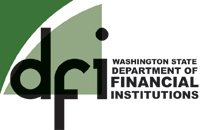
Fall 2019 Newsletter
Message from Rick St. Onge
Fall is certainly here and with it comes change. In our Summer Newsletter, we reported that Senate Bill 6029 (chapter 62, Laws of 2018) requires that student education loan servicers doing business in Washington be licensed under the Consumer Loan Act, chapter 31.04 RCW. Entities engaged in the business of servicing student education loans for Washington borrowers are required to be licensed with the Department, unless they fall within certain exemptions. We have provided a long notice and stakeholder communication period (the rules became effective January 1, 2019). As such, if you are engaged in conduct requiring licensure, you were required to be licensed as of September 30, 2019, to avoid potential penalties for unlicensed activity.
Fall is also the time to prepare for license renewals. Most of our licensees must take some action before the end of the year in order to maintain their license. As always, you are strongly advised to renew early in order to avoid a potential interruption in business at the start of the year. We are always looking for efficiencies in our processing while still meeting regulatory requirements. This year we will use the NMLS auto-renewal functionality for MLO licensees. MLOs without license items or other outstanding issues will be automatically renewed after a set number of days. We hope this will reduce the turnaround time to process clean renewals and allow our staff to focus on MLO renewals with unresolved issues. Be sure to read our article on the upcoming renewals and what you need to do to be ready.
I would like to thank those of you who participated in the rulemaking for the Consumer Loan Act and Mortgage Broker Practices Act this summer. It is important that we work together so that we can grow safe and sound compliant financial institutions. Our rulemaking update article has more information on the status of this summer’s rulemaking.
Please continue to watch for wire transfer fraud. We would just like to remind everyone that wire transfer fraud continues to occur. The Department released alerts in 2017 and again in 2019.


 We Want Newsletter Feedback:
We Want Newsletter Feedback: